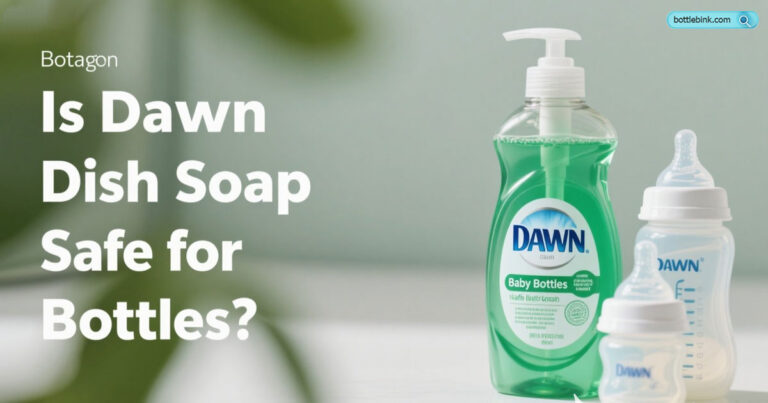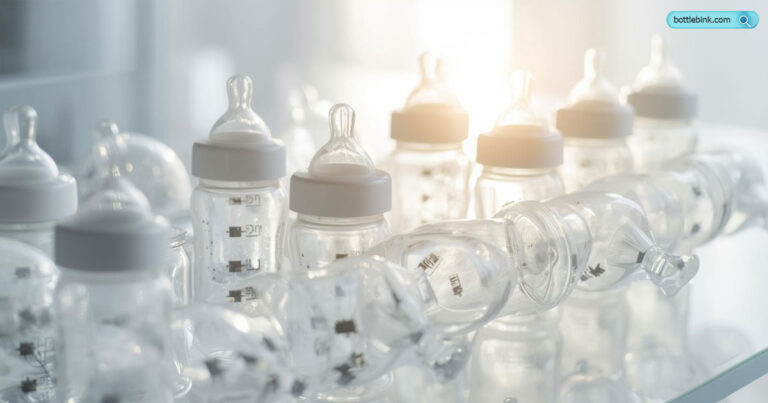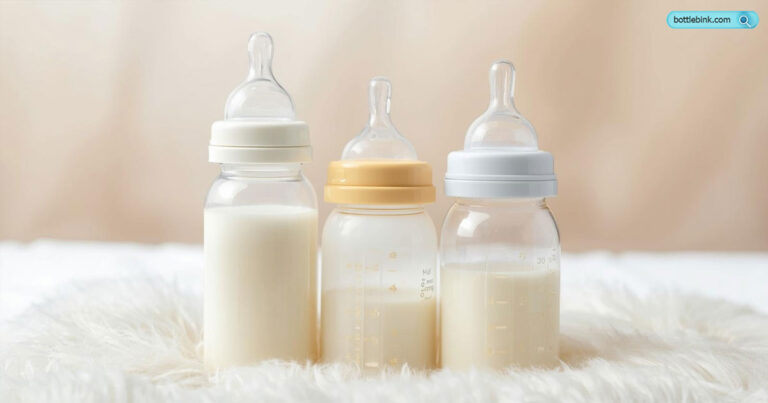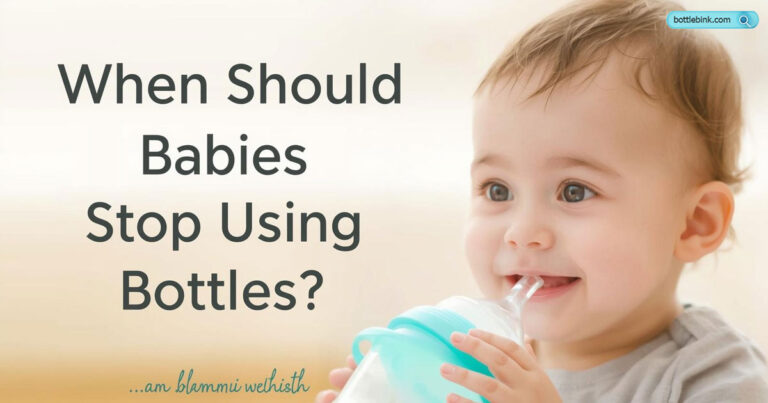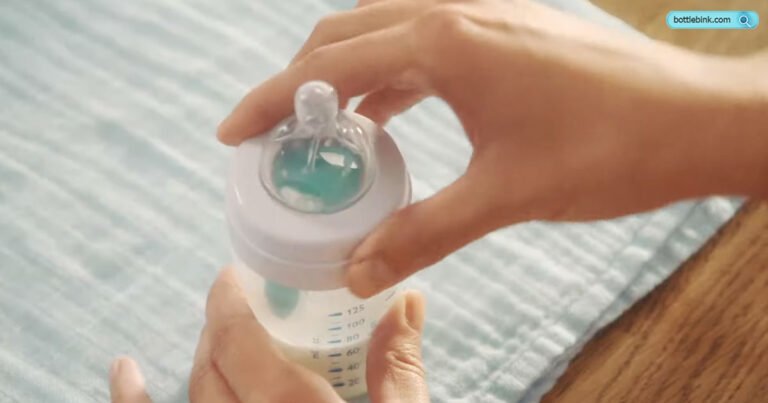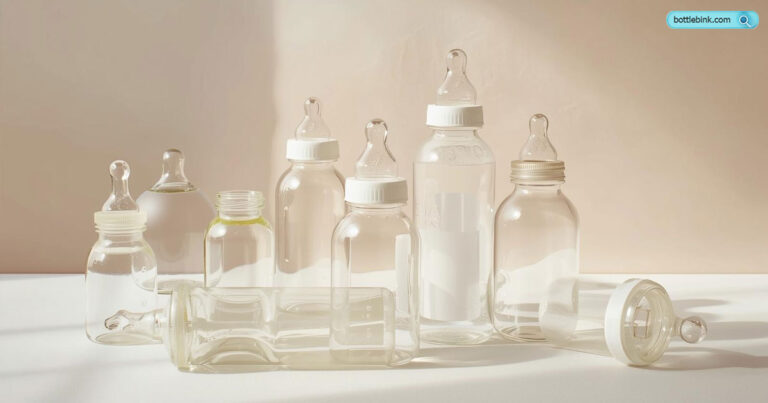How Many Baby Bottles Do I Need For a Baby
Most parents will need between 6 to 12 baby bottles depending on whether they exclusively formula-feed, breastfeed, or do a combination of both.
Introduction
Preparing for a baby often comes with a long checklist of essentials, and one of the most confusing items on that list is baby bottles. Many parents find themselves wondering, “How many baby bottles do I really need?” The answer isn’t the same for everyone because it depends on your feeding style, lifestyle, and even how often you want to wash bottles.
In this article, we’ll break down everything you need to know about choosing the right number of bottles, factors that influence your decision, and practical tips that will save you both time and money. By the end, you’ll have a clear idea of how many bottles are best for your family.
Factors That Determine How Many Baby Bottles You Need
When deciding how many baby bottles to purchase, there isn’t a one-size-fits-all answer. Every family’s needs are slightly different, and several key factors influence the right number for you. Understanding these factors will help you avoid overspending on unnecessary bottles while still ensuring you always have enough for your baby’s daily feeds.
1. Feeding Style
The biggest factor is whether your baby will be exclusively formula-fed, breastfed, or a combination of both.
Exclusive Formula Feeding:
Babies who are exclusively formula-fed rely on bottles for every single meal. A newborn may eat 8–12 times a day, meaning you’ll need more bottles to keep up with the demand. Most parents in this situation find that 8–12 bottles are practical so they don’t have to wash them constantly.Breastfeeding with Occasional Bottles:
If you primarily breastfeed and only use bottles occasionally for pumped milk, you won’t need nearly as many. In this case, 3–5 bottles are usually enough. This is ideal for moms who want to introduce bottles so their partner or caregiver can help with feeds.Combination Feeding:
Parents who use both formula and breast milk often need a middle ground—usually 6–8 bottles. This allows flexibility whether you’re pumping, supplementing with formula, or alternating between the two.
👉 In short, the more you rely on bottles for daily feeds, the more you’ll need.
2. Baby’s Age and Feeding Frequency
A newborn’s feeding schedule looks very different from that of a 6-month-old.
Newborn Stage (0–3 months):
Newborns typically feed every 2–3 hours. If you’re formula-feeding, that can mean up to 10–12 bottles in 24 hours. Smaller bottles (4–5 oz) are usually enough at this stage.Infant Stage (3–6 months):
By this age, babies feed about 6–8 times a day. Bottle size increases as babies take in 5–6 oz per feed. You may need fewer bottles because feeding frequency decreases, but larger bottles become necessary.Older Babies (6–12 months):
Babies typically feed 4–6 times a day with 7–8 oz per feed. Solids are often introduced, which means fewer bottles overall. Around 6 bottles may be sufficient during this stage.
In summary, younger babies require more bottles because of frequent feeding, while older babies need fewer bottles but larger sizes.
3. Washing and Sterilizing Frequency
How often you want to wash bottles will also impact how many you need.
Wash After Every Feed:
If you’re okay with washing a bottle right after your baby eats, you can get away with owning fewer—maybe 4–6 bottles.Wash Once or Twice a Day:
Many parents prefer washing in batches, especially at night when they’re tired. In this case, you’ll need more bottles—usually 8–12—so you have enough clean ones ready to last until your next wash.
If you plan to sterilize bottles daily or have a dishwasher with a sanitize setting, having a larger supply of bottles can make life much easier.
4. Lifestyle and Daily Routine
Your personal lifestyle also plays a big role.
Stay-at-Home Parents:
If you’re home with your baby most of the time, you can wash and reuse bottles frequently. This means you won’t need as many.Working Parents:
Parents who work outside the home or send their baby to daycare often need more bottles. Daycares typically require 4–6 pre-filled bottles per day. Having extras ensures you don’t run short.Travel and Outings:
If you’re often on the go, it helps to have extra bottles prepped so you don’t have to worry about cleaning while away from home.
5. Number of Caregivers
If multiple people feed your baby—such as grandparents, babysitters, or daycare staff—it’s helpful to have extra bottles. This prevents situations where bottles are left behind, misplaced, or not washed in time.
Having separate sets of bottles for home, daycare, or grandma’s house can also make life smoother.
6. Twins or Multiples
If you’re welcoming twins—or more—you’ll need double the bottles. Feeding two babies every few hours can quickly multiply the number of bottles required. Parents of multiples often keep at least 12–16 bottles to reduce constant washing.
7. Baby’s Preference
Some babies are picky and may only accept a certain type of bottle or nipple. If you find the right bottle, you may want to buy extras of that brand to avoid stressful feeding times.
General Recommendation for Baby Bottles
| Feeding Style | Suggested Number of Bottles | Notes |
|---|---|---|
| Exclusive Formula Feeding | 8–12 bottles | Enough for a full day without frequent washing. |
| Breastfeeding (Occasional) | 3–6 bottles | Useful for pumped milk storage and occasional bottle feeding. |
| Combination Feeding | 6–8 bottles | Balances formula and pumped milk needs. |
| Twins or Multiples | 12–16 bottles | Double the bottles, especially if formula-feeding. |
Bottle Sizes: Do You Need Different Ones?
Baby bottles usually come in two main sizes: small (4–5 oz) and large (8–9 oz).
Newborns (0–3 months): Smaller bottles are sufficient.
Older Babies (3+ months): Larger bottles become essential as babies consume more milk per feed.
Suggested Breakdown:
3–4 small bottles for newborn months.
6–8 larger bottles for later months.
How Many Bottles Do You Need Per Day?
Let’s look at an average newborn’s daily feeding schedule.
| Baby’s Age | Average Feeds per Day | Bottle Size | Approx. Bottles Needed |
|---|---|---|---|
| 0–3 months | 8–12 times | 2–4 oz | 8 bottles |
| 3–6 months | 6–8 times | 4–6 oz | 6–8 bottles |
| 6–12 months | 4–6 times | 6–8 oz | 6 bottles |
This shows that having 6–12 bottles is practical depending on age and feeding style.
Do You Need Different Types of Bottles?
Not all bottles are created equal. Some babies take to certain bottles better than others. Here are common types:
Standard Bottles: Basic and affordable.
Anti-Colic Bottles: Reduce air intake and prevent gas.
Wide-Neck Bottles: Designed for breastfed babies for easier transition.
Glass vs. Plastic Bottles: Glass is durable but heavier, while plastic is lighter but needs regular replacement.
Having a mix can help you discover which works best for your baby.
Practical Tips for Choosing the Right Number of Bottles
1. Start Small, Then Add More
Instead of buying 12 bottles at once, start with 4–6 bottles. Once you know what your baby prefers, you can purchase more of that type.
2. Consider Daycare Needs
If your baby goes to daycare, most facilities require 4–6 pre-filled bottles daily. Extra bottles will be helpful in this case.
3. Think About Washing Convenience
If you’re okay washing bottles multiple times a day, you can manage with fewer. If you’d rather wash once daily, stock up on 10–12 bottles.
4. Have a Backup
Babies can be unpredictable—spit-ups, leaks, and lost bottles happen. Having at least 2 extra bottles ensures you’re always prepared.
Bottle Accessories You’ll Also Need
It’s not just about the bottles themselves. You’ll also need:
Nipples in different flow sizes (slow, medium, fast).
Bottle brush and sterilizer.
Drying rack.
Formula dispensers or storage bags for pumped milk.
Having these accessories helps you make the most of your bottle collection.
Common Mistakes Parents Make When Buying Bottles
Buying Too Many Too Soon: Babies can be picky, and you may end up with unused bottles.
Not Upgrading Sizes: Some parents stick with small bottles even when their baby outgrows them.
Ignoring Cleaning Needs: Without enough bottles, constant washing can be exhausting.
Skipping Extra Nipples: Nipples wear out faster and should be replaced often.
Frequently Asked Questions (FAQs)
1. How many bottles do I need if I exclusively breastfeed?
If you mostly breastfeed and only pump occasionally, 3–4 bottles are usually enough.
2. Should I buy bottles before the baby is born?
Yes, but avoid buying in bulk. Start with a few and see what works for your baby.
3. Do I need both small and large bottles?
Yes, starting with smaller bottles for newborns is helpful, but larger bottles will be necessary as your baby grows.
4. How many bottles should I send to daycare?
Most daycares require 4–6 bottles per day. Having extras ensures you won’t run short.
5. Can I reuse bottles for multiple children?
Yes, as long as the bottles are in good condition. However, always replace the nipples.
6. How often should I replace baby bottles?
Plastic bottles should be replaced every 6 months or earlier if they show signs of wear. Glass bottles last longer.
7. Do I need anti-colic bottles?
Not always. Some babies do fine with regular bottles, while others benefit from anti-colic designs.
8. How many bottles should I keep ready at night?
Keeping at least 2–3 bottles prepped for nighttime feeds can save you stress.
Conclusion
So, how many baby bottles do you really need? The answer lies in your feeding style, lifestyle, and preferences. On average, most parents find that 6–12 bottles provide the perfect balance between convenience and practicality. Start small, experiment with different bottle types, and adjust based on your baby’s needs.
By planning ahead and choosing wisely, you’ll avoid unnecessary stress and make feeding time smoother for both you and your little one.

